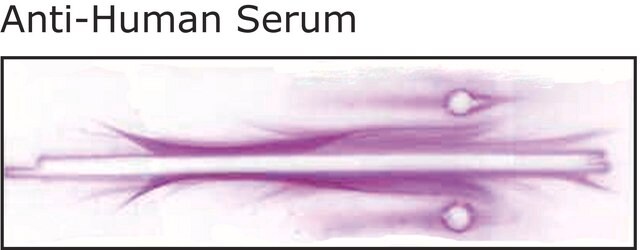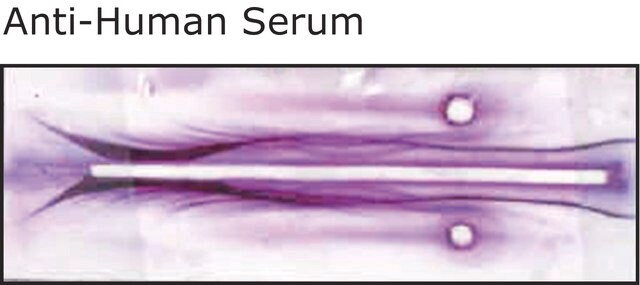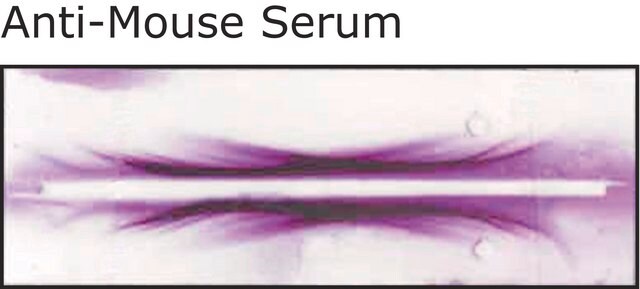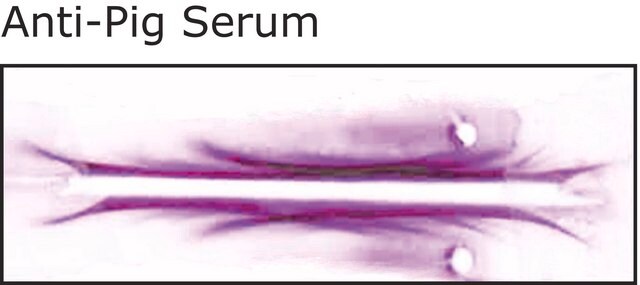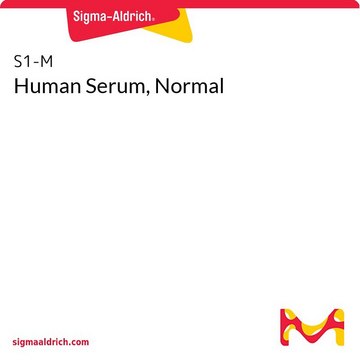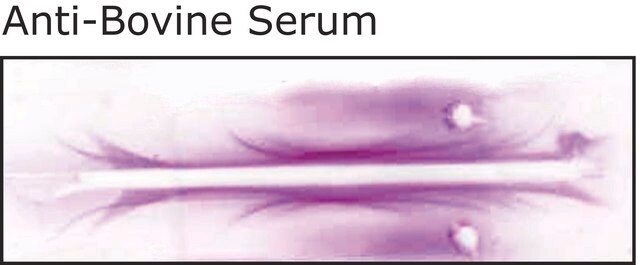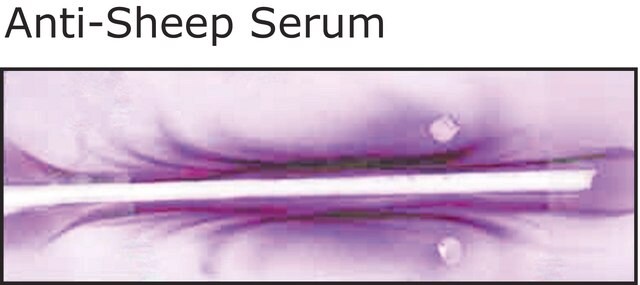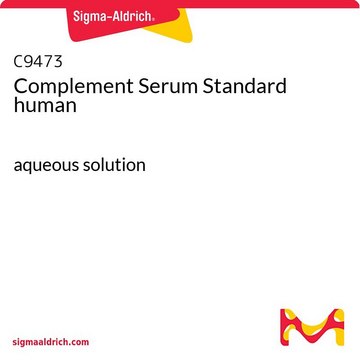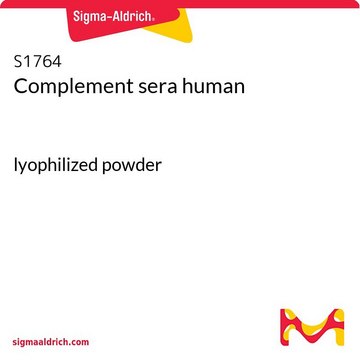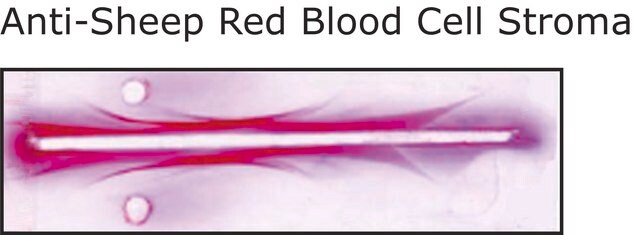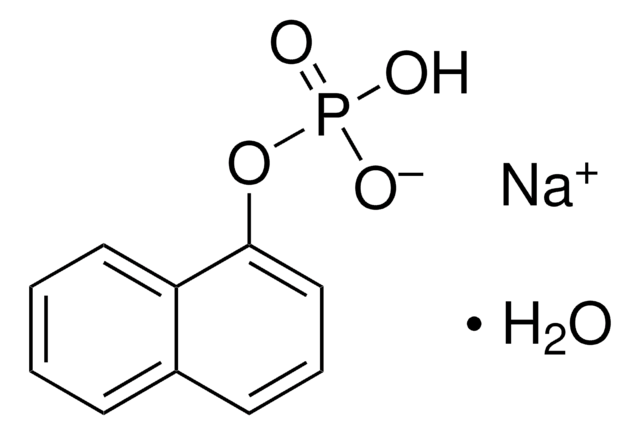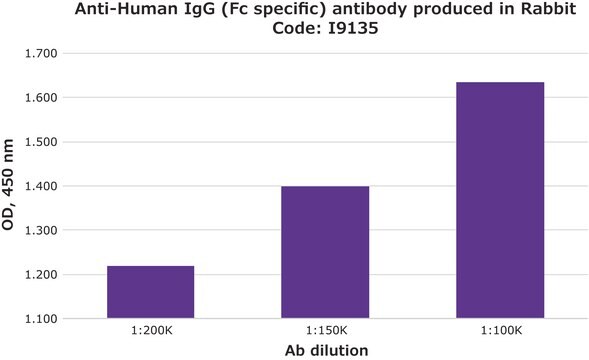H8765
Anti-Human Serum antibody produced in rabbit
whole antiserum
Synonym(s):
Rabbit Anti-Human Antibody
Sign Into View Organizational & Contract Pricing
All Photos(1)
About This Item
conjugate:
unconjugated
application:
IEP
clone:
polyclonal
species reactivity:
human
citations:
4
technique(s):
immunoelectrophoresis: suitable
Recommended Products
biological source
rabbit
Quality Level
conjugate
unconjugated
antibody form
whole antiserum
antibody product type
primary antibodies
clone
polyclonal
contains
15 mM sodium azide
species reactivity
human
technique(s)
immunoelectrophoresis: suitable
shipped in
dry ice
storage temp.
−20°C
target post-translational modification
unmodified
Looking for similar products? Visit Product Comparison Guide
General description
Serum is the component of blood plasma without cells and clotting factors. It is used in various assays, research and also as a supplement in cell culture. Anti-human serum antibody can be used in immunoelectrophoresis. Rabbit anti-human serum antibody reacts specifically with normal human serum.
Immunogen
Pooled normal human serum.
Application
Anti-human serum antibody (diluted 1:3 in KnockOut Dulbeccos′s modified Eagles medium) can be used in immunosurgery.
Quality
The antiserum has been treated to remove lipoproteins.
Not finding the right product?
Try our Product Selector Tool.
Storage Class Code
12 - Non Combustible Liquids
WGK
nwg
Flash Point(F)
Not applicable
Flash Point(C)
Not applicable
Choose from one of the most recent versions:
Already Own This Product?
Find documentation for the products that you have recently purchased in the Document Library.
Customers Also Viewed
Regional differences in expression of specific markers for human embryonic stem cells
Laursen SB, et al.
Reproductive Biomedicine Online, 15(1) (2007)
Michal Amit et al.
Methods in molecular biology (Clifton, N.J.), 331, 43-53 (2006-08-03)
Since their derivation in 1998, human embryonic stem cells (hESCs) have been the center of tremendous scientific efforts in improve the existing methodologies for their isolation and maintenance to exhaust the potential use of these unique cells in cell-based therapy
From Pluripotency to Early Differentiation of Human Embryonic Stem Cell Cultures Evaluated by Electron Microscopy and Immunohistochemistry.
Janus Valentin Jacobsen
Embryonic Stem Cells - Basic Biology to Bioengineering, doi: 10-doi: 10 (2011)
Evaluation of 28 human embryonic stem cell lines for use as unrelated donors in stem cell therapy: implications of HLA and ABO genotypes
Lee JE, et al.
Cell Transplantation, 19(11) (2010)
Christian B Brøchner et al.
The journal of histochemistry and cytochemistry : official journal of the Histochemistry Society, 60(3), 188-204 (2011-12-06)
The secreted glycoprotein YKL-40 participates in cell differentiation, inflammation, and cancer progression. High YKL-40 expression is reported during early human development, but its functions are unknown. Six human embryonic stem cell (hESC) lines were cultured in an atmosphere of low
Our team of scientists has experience in all areas of research including Life Science, Material Science, Chemical Synthesis, Chromatography, Analytical and many others.
Contact Technical Service